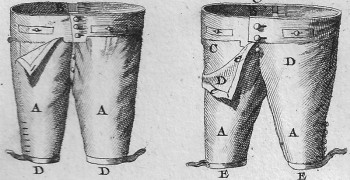Search results for "2010/02/let-us-eat-cake"
The Confirmation Present
30 June 1980 | Archives online, Fiction, Prose
An excerpt from Rakas rouva K (‘Dear Mrs K.’, 1979). Introduction and interview by Auli Viikari
Lahtinen read through what he had written so far, and it pleased him, especially the quotation from Clausewitz. “It could be said,” he went on, “that the victories of the French Revolution during those two decades were due in most cases to the mistaken policies of its opponents, even though the actual coup that shook the world took place within the framework of war.” His article was about the British attitude to Germany’s expansionist policies. There would not be another Munich, he felt sure: the House of Commons had cheered Chamberlain for the last time. Where, he asked himself, would England eventually abandon the role of passive onlooker? At Danzig, surely. It would not be like Poland to give something for nothing. She would set a world war in motion, of that he had no doubt. And he could see Poland dissolving into ruin before his very eyes. More…
Baby-boxes
18 February 2015 | This 'n' that

Contents of the Finnish baby-box. Photo: Annika Söderblom © Kela
Shortly before my first baby was born – ah, all of thirteen years ago, and a bit more – I paid a visit to the baby department of a central London department store.
Surrounded by push-chairs, feeding pillows, milk-expressers, nappy bins, nappy sacks, pink baby-grows, blue baby-grows, and advice books of every persuasion, I felt bewildered. The choice seemed infinite. Surely it couldn’t be this complicated.
I picked up one of the books. ‘6:30 Get up with your baby.’ I don’t think so, I objected inwardly. I’ve never been an early bird. ‘7:30 Breakfast: toast and marmalade.’ Definitely not. No one was going to tell me what to eat, or when. Were they? What on earth was this brave new world of motherhood going to be like? More…
The dog
30 September 1992 | Archives online, Fiction, Prose
From the collection of short stories Matka Grönlannin halki (‘A journey across Greenland’, Tammi, 1992)
The water in this town tasted of shit. Unto swallowed a couple of mouthfuls, gargled the rest and spat it into the wash-basin. The taste of garlic and old booze disappeared and only a flavour of metal remained on his palate. Unto glanced at the mirror and began to fumble for a comb. The bags under his eyes were flushed.
He pulled a clean shirt from his suitcase, and suddenly remembered how Mervi smelt in bed. There was a stirring in his groin, and unconsciously Unto sniffed at his shirt-sleeve as he buttoned his cuffs. In front of the mirror, he straightened the hem of his cardigan, combed his moustache and drew a deep breath. He felt like some meat soup. More…
Really existing?
30 March 2007 | Fiction, Prose
Extracts from the novel Mehiläispaviljonki. Kertomus parvista (‘The Bee Pavilion. A story about swarms’, Teos, 2006)
There are few old buildings in this town. Most are demolished to make way for new ones long before they reach the end of their first century.
Nevertheless, one brick building in our part of town, built at the beginning of the last century, was spared demolition for a long time. The two-storey building functioned as a Support Centre for the Psychically Ill and later on, for a couple of winters, as a shelter for alcoholics. The board fence that had surrounded the building for decades was taken down long before the building itself, but the maples on the sidewalk cast their shadows on its windows to the very end. When the lilacs and dogwoods in the back garden were in bloom, their heavy racemes shed purple and white on the sand. More…
Smarty pants?
9 January 2014 | This 'n' that

Culottes: 18th-century smartwear. Picture from ‘L’art du tailleur’ by Diderot & d’Alembert. Wikipedia
Eat your heart out, Angry Birds? Ever since the global success story of the Nokia phone company, Finns have been trying to rule the world with global electronic products. Among the latest achievements are analytical undies. The Finnish company Myontec has invented underwear embedded with electromyographic sensors, which measure the workings of your muscles and send the data to a computer.
Last year The New York Times gave the pants third place on their list of ‘32 Innovations that Will Change Your Tomorrow’.
What, you’re not athletic? You might stir from your sedentary slumber if your pants let you know how pathetically little you work out for your own good.
In late January Myontec’s smartshorts won the Sport & Fitness category at the Wearable Technology Innovations World Cup 2013/2014 in Munich. Who knows how far, globally, this will go? Smartpants, smartphones: perhaps your knickers will start talking one day – thus combining the advantages of two electronic appliances in which the Finns have expertise.
Are we stupid or what?
14 October 2011 | Non-fiction, Tales of a journalist
 Are we dumbed down by the Internet? Jyrki Lehtola takes a look at who might be to blame
Are we dumbed down by the Internet? Jyrki Lehtola takes a look at who might be to blame
Because I am not a historian and Googling this topic would take more than two clicks, I do not know whether Gutenberg was accused of ruining the future of young people and making adults even stupider.
There would have been reason to. The invention of the printing press took us away from what is truly important. The world was better before Gutenberg.
People knew themselves and each other; they were connected to nature and what really matters. After Gutenberg invented the printing press, those poor people were forced to read books, creating an ever-worsening state of helplessness. More…
Metamorphoses
30 June 1992 | Archives online, Fiction, Prose
Extracts from the novel Tummien perhosten koti (‘Home of the dark butterflies’, Kirjayhtymä, 1991). Introduction by Soila Lehtonen
The girl is on the rock every evening.
By the side of the sheltered bay, she knits or reads a book. Sometimes she simply lies, motionless, under a large towel, her closed face towards the sun as it sinks into the sea.
She has undone her thick plait. Sometimes her hair lies against the reddish boulder like a fan. As if it had been placed there deliberately.
She does not notice the boy, who can move soundlessly. More…
Slow down!
26 August 2011 | Letter from the Editors

Books for a desert island? Photo: Patrick Verdier (Wikimedia)
Might Tolstoy’s War and Peace be the epitome of a novel that qualifies for reading on a desert island? (Maybe along with Tristram Shandy or Finnegan’s Wake, and possibly The Gateless Gate (the Zen Buddhist kōans). After all, who’s got time or energy for some 1,500 pages of a wartime story from the Napoleonic era with too many characters (580, and so many of them called Pierre)?
We do tend to consume everything quickly: busy busy! We eat fast, we talk fast, we exercise fast, we fast-forward through movies. We devour books like fast food. Hurry hurry! On to the next one, whatever it is, don’t hang about! More…
Decent people
30 December 1998 | Fiction, Prose
The former newspaper reporter Jari Tervo (born 1959), now a successful novelist and quiz-show celebrity, writes about the seamier side of life. His subjects are mostly petty criminals and losers, but his crisp language is always a winner. And he can find a story even in a pork chop…. A short story from Taksirengin rakkaus (‘The love of the taxi-driver’, WSOY, 1998). Introduction by Suvi Ahola
The shopkeeper ran after the thief and caught him. The people in the parking lot of the S-Market made a fuss. The thief took fright when he found himself grasped by the scruff of the neck by a man the size of a baseball player. The shopkeeper removed the thief’s stomach. It turned out to be a packet of pork chops. They were not on special offer.
The thief stammered. The shopkeeper just had time to think that was the worst thing after snivelling when the thief started to snivel. The shopkeeper began to feel infuriatingly sorry for the thief’s arm, which was in a sling. Even his clothes were ugly. He let the thief go with a kick. I’m too good to be a shopkeeper, the shopkeeper thought delightedly, thanked the onlookers for their applause and put the packet of chops back on the shelf, where it was bought by a housewife. More…
Patsy, the artist of the lumber camps
31 December 1984 | Archives online, Fiction, Prose
A short story from Atomintutkija ja muita juttuja (1950). Introduction by Aarne Kinnunen
Deep in the wilds, where the only sound is the sad, primeval sighing of the forest, it is easy to succumb to a mood of boredom and melancholy. It may sometimes occur to you that in such a place you are wasting your life. Real life goes on elsewhere, in places with more people, more signs of human activity, more light, more gaiety…
You fell a tree, severing a string of that mighty instrument, the forest. You saw it into logs, you strip off the bark: it all seems dull and pointless. Sometimes the rain decides to go on for days: the trees have streaming colds, droplets hang from every needle-tip. You make for the shelter of a lumber camp. But the low-roofed rest-hut, deep in the forest, looks a dreary place, the well-known faces are so dull, the talk so futile. You feel you know in advance what each man is going to say. And the food, too, is just the same as usual, the same old rubbishy mush. The sight of the pot, with its blackened sides, gives no pleasure: you know all too well what is in it. And those grubby playing-cards, how disgusting! The mere sight of them is enough to make you feel defiled… More…
‘Joy and peace prevail…’
25 December 2010 | Fiction, Prose
Dear readers,
to celebrate the change of the year we publish an extract from Aleksis Kivi’s 1870 classic novel, Seitsemän veljestä (Seven Brothers), translated by David Barrett, and a bit of a classic of our own too: it’s a nostalgic glimpse of a Finnish Christmas spent in a humble cottage inhabited, in addition to the eponymous seven brothers, a horse, cat, cockerel and two dogs (at least). Enjoy!
Soila Lehtonen & Hildi Hawkins & Leena Lahti
On a festive night
It is Christmas Eve. The weather has been mild, grey clouds fill the sky, hills and valleys are covered with the snow that has only recently begun to fall. The forest gives out a gentle murmur, the grouse goes to roost in the catkined birch, a flock of waxwings descends on the reddening rowan, while the magpie, daughter of the pine-wood, carries twigs for her future nest. More…
Notes for an unwritten autobiography
15 September 2011 | Fiction, Prose
Extracts from the novel William N. Päiväkirja (‘William N. Diary’, Otava, 2011). Interview by Soila Lehtonen
Paris, 15 November 1897
Constance probably bought this notebook for housekeeping purposes, but forgot it when she left, so I shall take it for my use, and I am not going to tear a single page, because the paper is of good quality and the covers are made of calico. When I write in a small hand there is plenty of room for the text, and when I write in Swedish Constance will not understand, if she chances to see the notebook. She has promised to visit once or twice a week and continue to bring food and do the cleaning (we cleared up the differences of opinion that were related to her departure), even though she has now moved and married a retired officer, having been my housekeeper for nearly 30 years. The laundry she has delegated to Madame L., who lives in this house, although that lady is intolerably nosy and talkative, and she has six smutty children. I have decided to write my autobiography, so that posterity shall receive a full and proper impression of my work. (Let Prof. Schwendener from Berlin and Dr Louis Pasteur be content with minor roles!) I shall not begin until tomorrow, for today I intend to study the specimens of South American lichens Prof. D. has sent if there is enough daylight. More…
Things
31 March 1997 | Archives online, Fiction, Prose
A short sory from Kaunis nimi (‘A lovely name’, Otava, 1996). Raija Siekkinen’s limpid prose is at its best when she explores the complex feelings that lie behind the events of everyday life. Here objects are indicators of emotions, memory and loss, and what is most important is left unsaid
And where was the pen, the fountain pen, black, chubby; the one which pumped the ink straight up from the bottle?
There were three gold-coloured bands on the cap of the pen, and its nib, too, was golden, It had been given to her in a case lined with black velvet, and there was a groove for the pen, and a depression for the ink-bottle; and the bottle was narrow -necked, with curving sides, and the ink in it was not bright blue, but dark, so that words written in it looked old, written a long time ago; one forgot that one had written them oneself, one read them like the words of a stranger.
She remembered the pen, and began slowly to wake up. More…
A Note on Nine Contemporary Poems from Finland
31 March 1987 | Archives online, Articles, Fiction, Non-fiction, poetry
Contemporary Finnish poetry, translated and introduced by Anselm Hollo
The last couple of months, it has been my pleasure to browse around in a tightly packed shelf of books of poetry published in Finland in the last five years. On the showing of these, and of the excellent anthology Modern finlandssvensk lyrik (‘Modern Finland-Swedish poetry’, 1980), edited by Claes Andersson and Bo Carpelan, poetry certainly seems to be alive and well in the old homeland. In a way, the sheaf translated here is just first travel notes, individual works that struck my fancy seemed translatable: thus, by no means a ‘representative selection’.
Claes Andersson’s poem ‘When I was born, Helsinki was…’ was quite simply a direct hit (perhaps an unfortunate metaphor in that it deals, in part, with the WW2 air raids on Helsinki) – it brought back personal memories from my early childhood. But beyond those immediate circumstances, it is also a very moving evocation of the magnificent and terrifying world of magic children inhabit. Helena Anhava’s ‘These years…’, with its marvelous image of the great hinge turning in the human psyche at certain points familiar to anyone who has lived into middle age, seemed a fine example of her impressive body of meditative lyric poems, sharing a tenor of wistfulness not uncommon in Finland’s poetry with Bo Carpelan’s ‘You drive up…’, which is also a poem of the pangs of change. In Carpelan’s text, the clash between ‘wonderful clear Vivaldi’ on the protagonist’s car radio and the perceived tawdriness of the environment is beautifully balanced between genuine revulsion for the latter and a self-irony directed against the self-declared ‘finer sensibilities’ of the class that can afford them. Tua Forsström‘s ‘Do you want to hear something’ moves in a lovely dance figure from myth to everyday present: we see the interior world that is Nausicaa’s island shimmering through the exterior in which ‘someone’s/ balcony door whines all night like a cat’. More…
Looking for Moominpappa
30 June 1994 | Archives online, Children's books, Fiction
Tove Jansson wrote the first Moomin book in the dark days of Finland’s Winter War in 1939. This extract, from Småtrollen och den stora översvämningen (‘The little trolls and the big flood’, Schildts, 1945, 1991), tells the story of how the Moomins found their home
It had become very hot late in the afternoon. Everywhere the plants drooped, and the sun shone down with a dismal red light. Even though Moomins are very fond of warmth, they felt quite limp and would have liked to rest under one of the large cactuses that grew everywhere. But Moominmamma would not stop until they had found some trace of Moomintroll’s Papa. They continued on their way, even though it was already beginning to get dark, always straight in a southerly direction. Suddenly the small creature stopped and listened. ‘What’s that pattering around us?’ he asked.
And now they could hear a whispering and a rustling among the leaves. ‘It’s only the rain,’ said Moominmamma. ‘Even so, now we must crawl in under the cactuses.’
All night it rained, and in the morning it was simply pouring down. When they looked out, everything was grey and melancholy. More…
